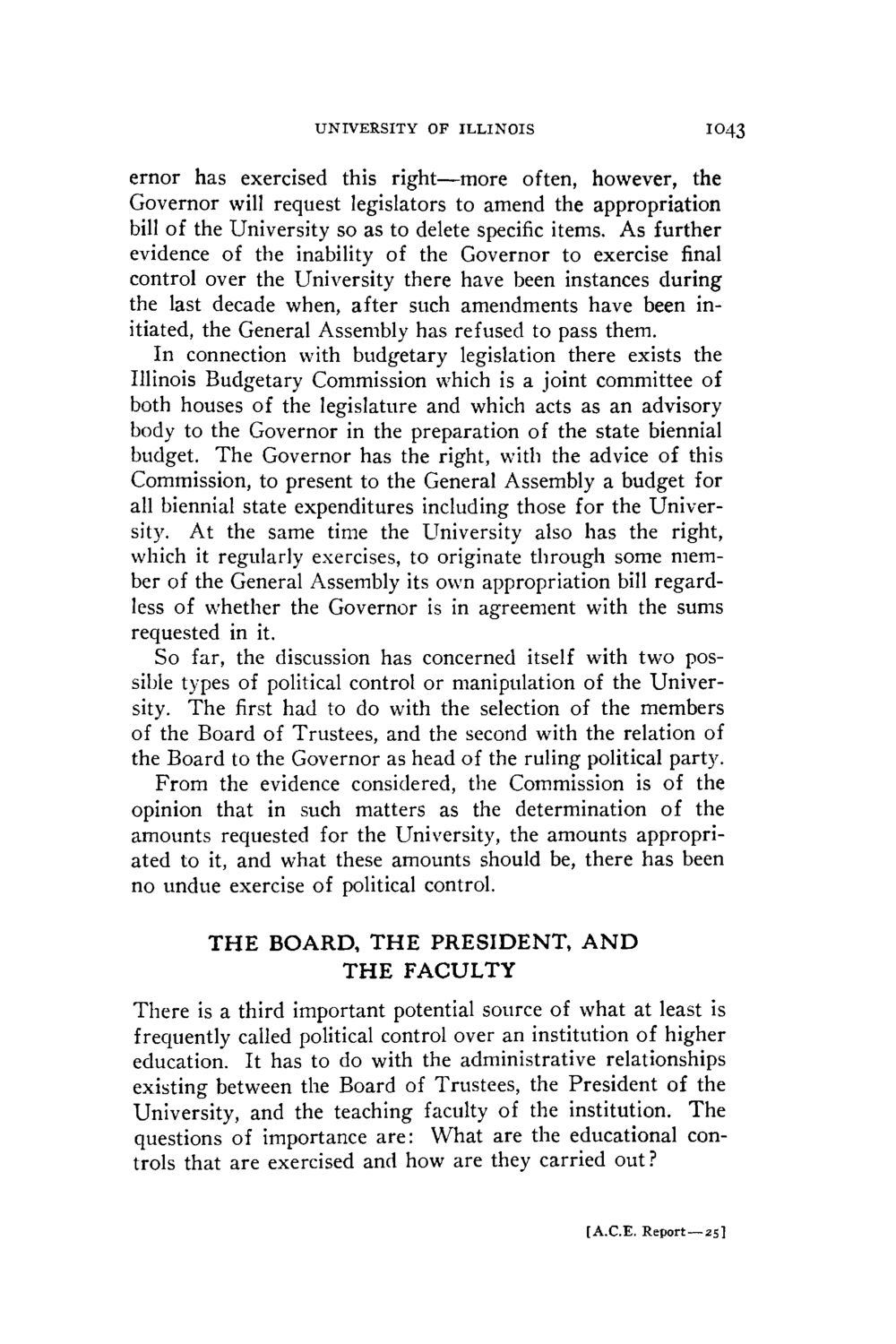| |
| |
Caption: Board of Trustees Minutes - 1944
This is a reduced-resolution page image for fast online browsing.

EXTRACTED TEXT FROM PAGE:
U N I V E R S I T Y OF I L L I N O I S I043 ernor has exercised this right—more often, however, the Governor will request legislators to amend the appropriation bill of the University so as to delete specific items. As further evidence of the inability of the Governor to exercise final control over the University there have been instances during the last decade when, after such amendments have been initiated, the General Assembly has refused to pass them. In connection with budgetary legislation there exists the Illinois Budgetary Commission which is a joint committee of both houses of the legislature and which acts as an advisory body to the Governor in the preparation of the state biennial budget. The Governor has the right, with the advice of this Commission, to present to the General Assembly a budget for all biennial state expenditures including those for the University. At the same time the University also has the right, which it regularly exercises, to originate through some member of the General Assembly its own appropriation bill regardless of whether the Governor is in agreement with the sums requested in it. So far, the discussion has concerned itself with two possible types of political control or manipulation of the University. The first had to do with the selection of the members of the Board of Trustees, and the second with the relation of the Board to the Governor as head of the ruling political party. From the evidence considered, the Commission is of the opinion that in such matters as the determination of the amounts requested for the University, the amounts appropriated to it, and what these amounts should be, there has been no undue exercise of political control. T H E BOARD, THE PRESIDENT, A N D T H E FACULTY There is a third important potential source of what at least is frequently called political control over an institution of higher education. It has to do with the administrative relationships existing between the Board of Trustees, the President of the University, and the teaching faculty of the institution. The questions of importance are: What are the educational controls that are exercised and how are they carried out? [A.C.E. Report — 25]
| |